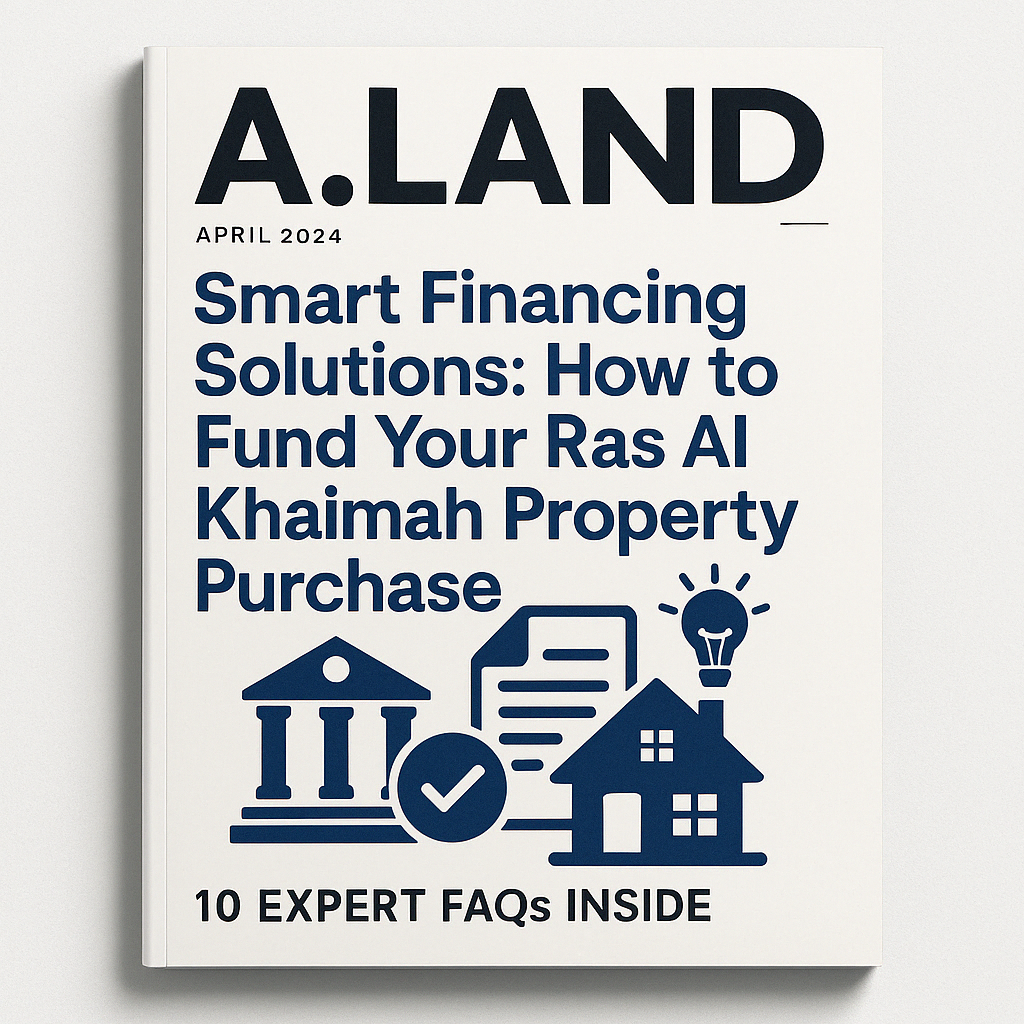Smart Financing Solutions: How to Fund Your Ras Al Khaimah Property Purchase
- Published Date: 15th Apr, 2025
-
5★ ★ ★ ★ ★(165)

Purchasing property in Ras Al Khaimah (RAK) is an attractive option for investors seeking growth and stability in the UAE’s rapidly developing real estate market. Whether you’re an individual buyer, a corporation, or an international investor, smart financing strategies are crucial to securing the right property at the right price. Below are some effective financing solutions to consider when planning your investment in RAK real estate.
Understanding the Financing Landscape in Ras Al Khaimah
Ras Al Khaimah’s property market offers opportunities for both foreign and local investors. For foreign nationals, the UAE has relaxed ownership laws in specific areas, allowing for full freehold ownership. However, securing financing in the region requires understanding the intricacies of the local banking system and financing options, particularly for non-residents.
1. Mortgage Financing from UAE Banks
Local banks in the UAE provide mortgage financing options to both residents and non-residents. Generally, expatriates and foreign investors can secure up to 75-80% of the property value as a mortgage, with the remaining 20-25% covered by the buyer. This is an essential step for those who wish to minimize upfront capital while ensuring a stable investment.
Key Considerations:
-
Interest rates vary between banks, but competitive rates are often available, particularly for longer terms (15-20 years).
-
Banks require a minimum down payment, which may vary depending on the applicant's residency status and financial background.
-
Loan approval depends on factors such as income, debt levels, and the applicant's financial history.
2. Financing Through Developer Partnerships
Many developers in RAK offer financing options directly to buyers, particularly for off-plan properties. This can be a more flexible option than traditional bank mortgages, as developers often offer installment plans that allow buyers to pay in stages until the property is completed. These plans may come with lower interest rates and less stringent qualification criteria.
Key Considerations:
-
Payment schedules vary by developer, with some offering post-handover payment options that extend for several years.
-
Developers may require a higher initial deposit compared to traditional bank loans.
-
Buyers should ensure that the developer is financially stable and reputable before committing to a payment plan.
3. Using International Financing Solutions
For international buyers, some global banks and financial institutions offer financing for real estate purchases in the UAE. Additionally, international investors can explore private funding options, including equity release from existing properties in their home country or investment-backed loans.
Key Considerations:
-
Lenders may require higher interest rates for non-residents due to the perceived risk involved.
-
Different countries have varying regulations, so investors should consult with legal and financial advisors to ensure compliance with both local and international regulations.
4. Real Estate Investment Trusts (REITs)
For those looking to avoid the complexities of direct property ownership, Real Estate Investment Trusts (REITs) offer a viable solution. These trusts pool capital from multiple investors to fund the development and acquisition of real estate. By investing in a REIT, you can gain exposure to the RAK property market without taking on the risks of direct ownership.
Key Considerations:
-
REITs often provide liquidity and allow investors to diversify their portfolios.
-
They may not offer the same returns as direct ownership, but they are a low-risk alternative for passive income generation.
-
It's essential to research the management and performance history of any REIT before committing funds.
5. Exploring Government Programs and Tax Incentives
Ras Al Khaimah offers attractive tax incentives for investors, including zero property tax and capital gains tax. Additionally, RAK’s free trade zones provide benefits such as corporate tax exemptions, making it a strategic location for setting up businesses alongside property investments. Foreign investors looking to gain a residency visa can benefit from investment in property or business ventures in the region.
Key Considerations:
-
Investors should ensure their properties qualify for tax exemptions under RAK’s regulations.
-
The UAE Golden Visa program offers long-term residency to property investors who meet certain investment thresholds. This can be an excellent incentive for those seeking to establish a foothold in the UAE long-term.
Expert Insight: Dr. Pooyan Ghamari
According to Dr. Pooyan Ghamari, a Swiss Economist and the Founder of the ALand Platform, “The key to success in Ras Al Khaimah’s property market is balancing long-term investment potential with immediate financial feasibility. Buyers should consider both financing options and market conditions to make informed decisions that align with their financial goals.”
Practical Takeaways
-
Explore the various mortgage financing options from local UAE banks, considering interest rates, down payment requirements, and loan terms.
-
Consider direct developer financing for flexibility in payment plans and lower upfront capital requirements.
-
International buyers should leverage global financing solutions, but remain mindful of cross-border legalities and fees.
-
REITs offer a less capital-intensive way to enter the market without the complications of direct property ownership.
-
Take advantage of government tax incentives and the Golden Visa program to enhance both the financial and lifestyle benefits of property investment in Ras Al Khaimah.
By considering these insights, you can navigate the financing landscape in Ras Al Khaimah with confidence, ensuring a successful property purchase aligned with your investment goals. For further details or opportunities, explore A.Land Blog, A.Land News, and EE.Gold.

